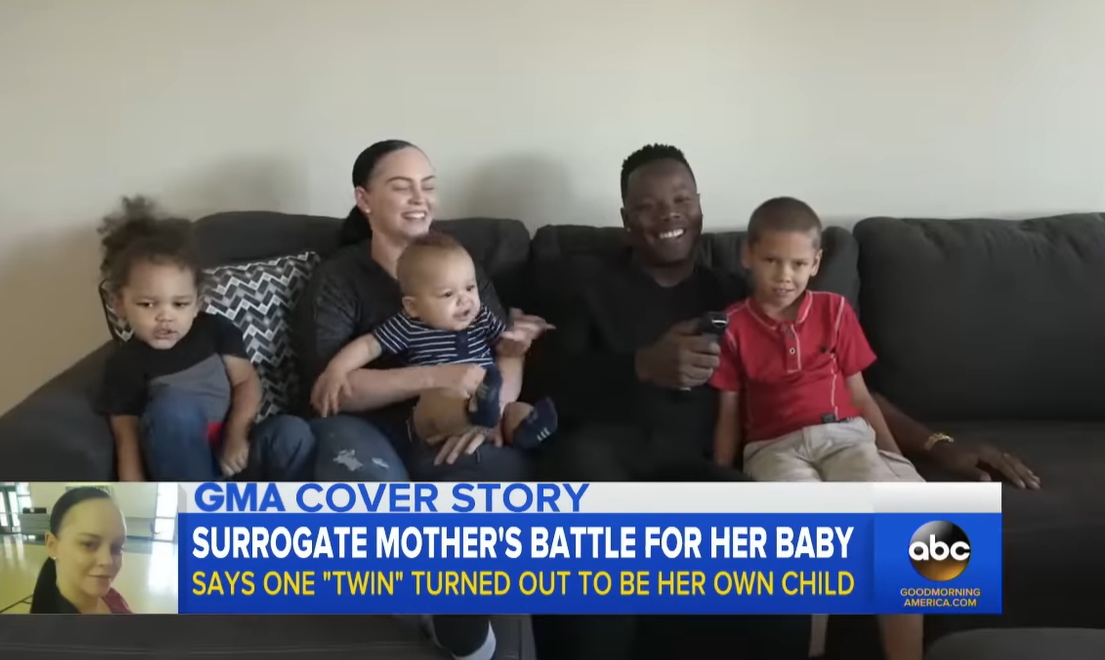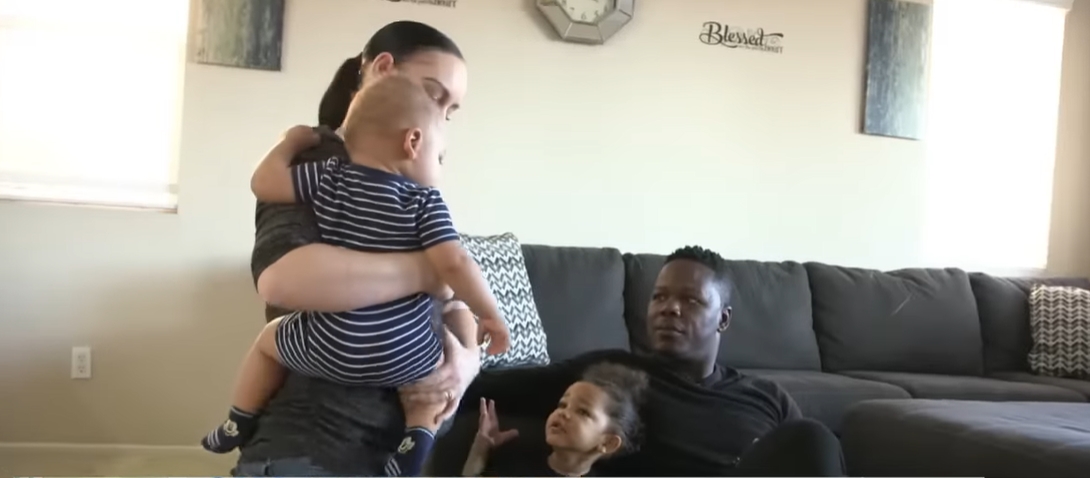In a remarkable turn of events, California mother Jessica Allen’s decision to become a surrogate for another couple led to an unexpected revelation that would forever alter her family’s life. Already a mother of two with her husband, Wardell Jasper, Allen embarked on the surrogacy journey to help another couple achieve their dream of parenthood. After a successful embryo implantation, an ultrasound revealed she was carrying twins, prompting an updated compensation agreement. However, the birth in December 2016 would bring more than just the expected joy—it would uncover a rare and unforeseen biological mystery.

Just a month after the birth, Allen was shocked to learn that one of the newborns was biologically related to the intended parents, while the other was her own biological child, conceived naturally with her husband during the surrogacy process. This rare phenomenon, known as superfetation, led to the discovery that the twins were not biologically related to each other, with each having distinct DNA and different sets of parents. What was initially thought to be a straightforward surrogacy arrangement quickly became a complex legal and emotional battle.

Despite the terms of her surrogacy contract allowing her an hour with the newborns after birth, Allen’s connection with her biological son was initially limited to a photograph. She immediately noticed the babies’ distinct appearances, a realization that was later confirmed to be a result of their differing biological origins. The revelation set in motion a legal fight as Allen struggled to bring her biological son home, a process that involved compensating the intended parents to secure full legal custody of the child in February 2017.


Finally, after overcoming the emotional turmoil and legal obstacles, Allen was reunited with her son, who she and her husband named Malachi. The moment of reunion was filled with overwhelming emotion as Allen described the joy of embracing her long-awaited child. Malachi thrived in his new family, bonding with his older brothers and reaching developmental milestones. While the situation had been entirely unplanned, Allen and her husband treasured their son deeply, grateful for the unexpected addition to their family.

Reflecting on the experience, Allen expressed no regret about becoming a surrogate, even though the journey had been fraught with unforeseen challenges. She emphasized that her story could serve as a cautionary tale for other women considering surrogacy, highlighting the potential complications that can arise and their lasting impact on all parties involved. The legal and emotional aftermath of the case underscored the complexity of surrogacy and its potential to reshape lives in unexpected ways.
